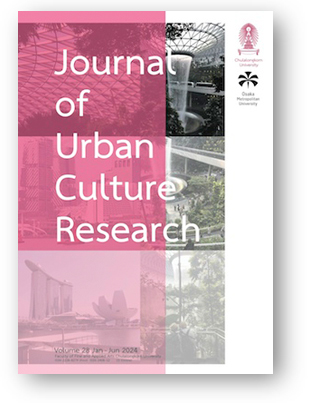Chinese Traditional Paper-Folding Practices as a Social Aesthetic of Baan Saan Community Art, Phuket Old Town: A Case Study
DOI:
https://doi.org/10.14456/jucr.2023.33Keywords:
Community Art; Chinese Practice; Phuket Old Town; Social Aesthetic; ThailandAbstract
This research utilizes an anthropological lens to examine the understanding of social aesthetics within a local market community with an unique traditional heritage. The data for this research was collected during a series of workshops aimed at creating community art in the Baan Saan Community of Phuket, Thailand. The artists and community leaders at first proposed graffiti and wall paintings, which are often found in modern South-East Asian tourist hotspots. However, the community members chose instead to conduct a workshop on traditional methods of folding joss paper. The joss paper is contextualized in this merchant community where the aesthetic value of exchange and Hokkien-Chinese cosmology are commemorated. The research found that the material in everyday life could initiate social aestheticism when it is elevated to an artistic state in the process of the workshop. Thereafter, the social relations of community members are strengthened through the engagement with the traditional material and artistic process.
Downloads
Published
Versions
- 2024-07-07 (2)
- 2024-06-24 (1)
How to Cite
Issue
Section
License

This work is licensed under a Creative Commons Attribution-NonCommercial-NoDerivatives 4.0 International License.
Authors authorize the JUCR to publish their materials both in print and online while retaining their full individual copyright. The copyright of JUCR volumes is retained by Chulalongkorn University.
The views and opinions expressed herein are those of the individual author(s) and do not necessarily reflect the policies or opinions of the Journal (JUCR), it editors and staff, Chulalongkorn University, or Osaka Metropolitan University.







